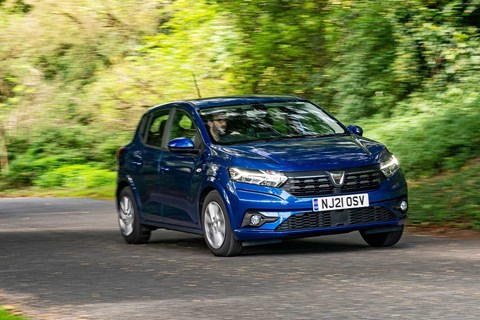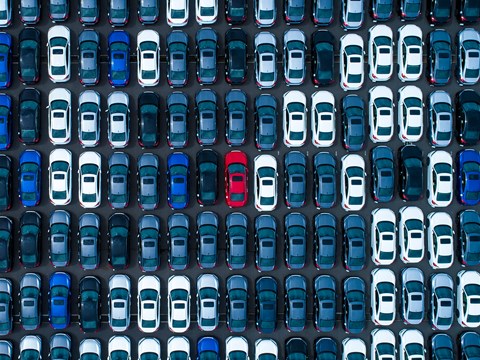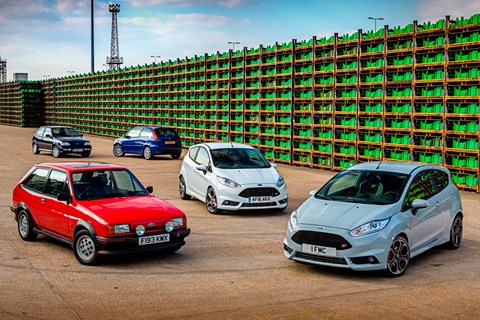► New car prices rising dramatically
► The macro forces pushing up costs
► Industry pivots to more expensive cars
A couple of stories this month epitomise a wider problem gripping the car industry: the demise of the cheap, popular Ford Fiesta and the launch of the Volvo EX90, the Swedish brand’s first car to broach the £100k price cap.
Two isolated news articles or reflective of a wider trend? It seems obvious that it’s the latter, as dark forces conspire to push up prices across the board.
Wherever in the marketplace you look, the cost of new cars is rising, often dramatically. My previous long-term test car, the Dacia Sandero (below), was launched in 2020 at the bargain price of £7995 – making it comfortably the cheapest new car on the market. Today the entry-level Sandero costs £12,595. A rise of 58 per cent in a little more than two years!

So what’s happened? Is this the death knell of cheap, affordable cars?
Why are new car prices so expensive?
A potent cocktail of external forces is at play. Some are long-term structural changes, such as the electrification of the automobile, whereas other are sudden shifts caused by dramatic news events:
- Electrification: Emissions regulations ban combustion engines altogether from 2030/35 across Europe – accelerating the switch to electric vehicles (EVs) with their expensive battery tech and higher purchase prices
- Brexit: The UK’s divorce from Europe has made Britain a more expensive place to do business, not helped by Liz Truss’s short and disastrous premiership
- Covid: Production stoppages in lockdown and chip shortage hit supply hard, pushing up prices
- Ukraine war: Further hits to supply chain, restricting supply further
- Global recession: Soaring energy costs, rampant inflation pressuring manufacturing costs further
- Regulations: Ever-tightening emissions controls, and safety laws, meaning pricier manufacturing costs
It’s an implausibly nasty combination of factors, leaving manufacturers with nowhere to go – except hike prices. Especially in the UK, as the pound has slid against most major currencies during the economic turmoil.
Why is nobody serving the bargain basement?
Small cars have long been notoriously difficult to make profits from – each unit generating just a few hundred euros, according to analysts. It’s a lesson in basic economics: manufacturers are commercial beasts – here to make money, not mobilise the masses.
Research unit Bernstein warned in a 2019 report that the cost of meeting emission and safety regs would force many small cars off the road: ‘Big cars have the price points and margins to cover these costs. Small cars simply do not. These segments may soon be abandoned by many manufacturers.’

If the past three years of crisis have taught car makers anything, it’s that they can make greater profits from building fewer, higher-value cars. The industrial resilience they’ve learned, cancelling entry-level models and siphoning the available chips to their higher-margin range-toppers during Covid, is canny portfolio management.
Volkswagen last month reported a rise in operating profits to €4.3 billion (£3.8bn) for the quarter ending in September, up from €2.6bn (£2.3bn) last year. Many other car makers have enjoyed similarly robust results, despite the market turmoil.
Covid survival strategies may be changing the long-held pile-’em-high-sell-’em-cheap thinking that has blighted the car industry for decades. The penny has finally dropped: they can make greater profits by selling fewer cars…
There are no more cheap cars any more…
The demise of the Ford Fiesta (below) and rising prices of the few remaining city cars and superminis is a case in point. With several years of under-delivery, supply is scarce – and used values are still rampantly strong.

What are the ramifications if the next generation cannot afford their first car? If families on the breadline cannot pay for their next car? The macroeconomics reshaping the car market are likely to have a bigger effect on private car ownership than many currently realise.
If prices remain this high, especially in a cost of living crisis, private car ownership could be dead in the water. Maybe like with housing, Generation Rent is the new normal in motoring.
After all, it’s what the likes of Lynk & Co with their Netflix-style subscription models have been saying for years. Time to track down that one-careful-owner Fiesta ST in the classifieds, and treat it as a keeper…